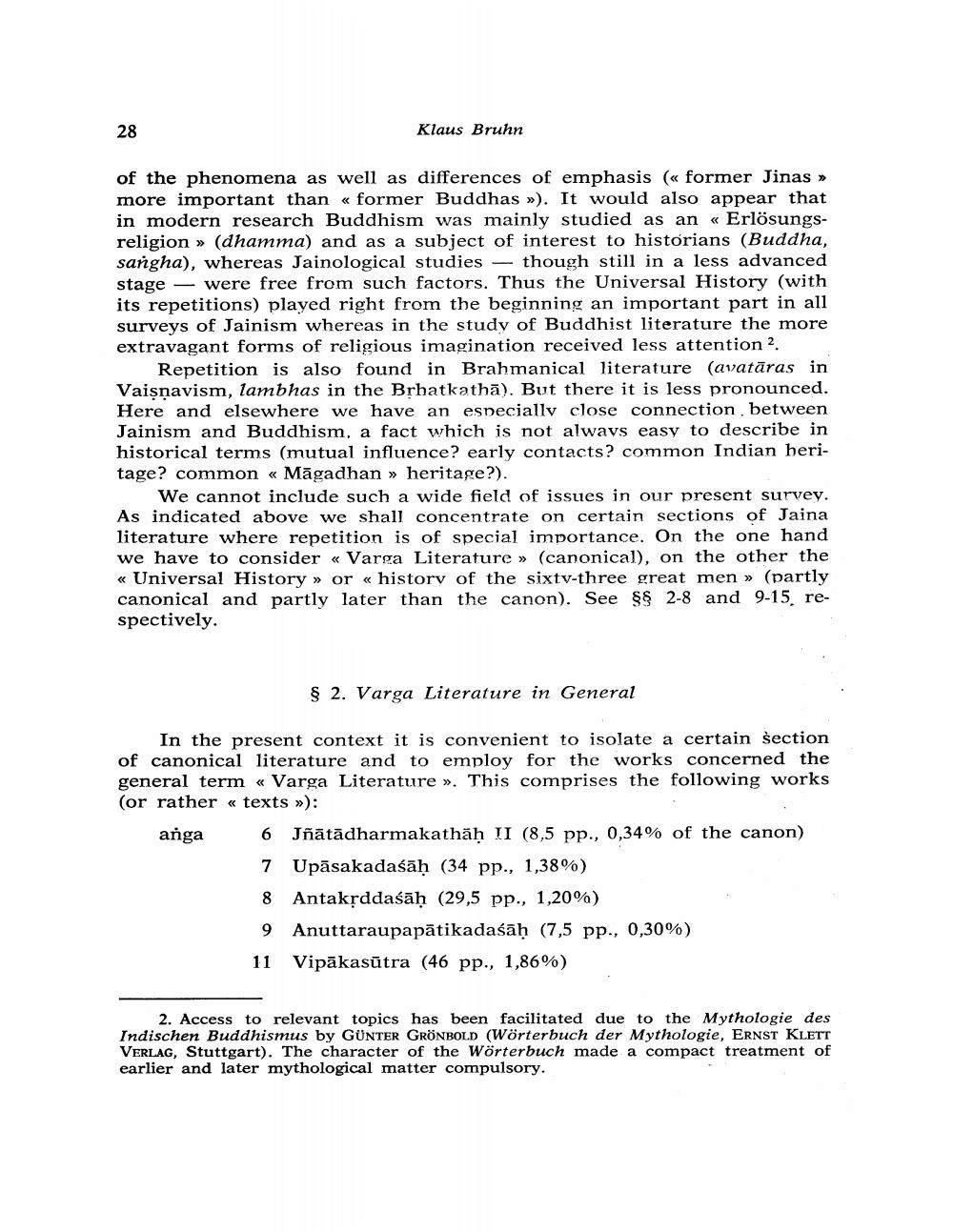Book Title: Repetition In Jaina Nrative Literature Author(s): Klaus Bruhn Publisher: Klaus Bruhn View full book textPage 2
________________ 28 Klaus Bruhn of the phenomena as well as differences of emphasis (« former Jinas >> more important than « former Buddhas »). It would also appear that in modern research Buddhism was mainly studied as an « Erlösungsreligion » (dhamma) and as a subject of interest to historians (Buddha, sangha), whereas Jainological studies — though still in a less advanced stage — were free from such factors. Thus the Universal History (with its repetitions) played right from the beginning an important part in all surveys of Jainism whereas in the study of Buddhist literature the more extravagant forms of religious imagination received less attention 2. Repetition is also found in Brahmanical literature (avatāras in Vaisnavism, lambhas in the Brhatkathā). But there it is less pronounced. Here and elsewhere we have an especially close connection between Jainism and Buddhism, a fact which is not always easy to describe in historical terms (mutual influence? early contacts? common Indian heritage? common «Māgadhan >> heritage?). We cannot include such a wide field of issues in our present survey. As indicated above we shall concentrate on certain sections of Jaina literature where repetition is of special importance. On the one hand we have to consider « Varga Literature » (canonical), on the other the « Universal History » or « history of the sixty-three great men » (partly canonical and partly later than the canon). See S$ 2-8 and 9-15. respectively. § 2. Varga Literature in General In the present context it is convenient to isolate a certain section of canonical literature and to employ for the works concerned the general term « Varga Literature ». This comprises the following works (or rather « texts »): anga 6 Jñātādharmakathāh II (8,5 pp., 0,34% of the canon) 7 Upāsakadaśāḥ (34 pp., 1,38%) 8 Antakṣddaśāḥ (29,5 pp., 1,20%) 9 Anuttaraupapātikadaśāḥ (7,5 pp., 0,30%) 11 Vipākasūtra (46 pp., 1,86%) 2. Access to relevant topics has been facilitated due to the Mythologie des Indischen Buddhismus by GÜNTER GRÖNBOLD (Wörterbuch der Mythologie, ERNST KLETT VERLAG, Stuttgart). The character of the Wörterbuch made a compact treatment of earlier and later mythological matter compulsory.Page Navigation
1 2 3 4 5 6 7 8 9 10 11 12 13 14 15 16 17 18 19 20 21 22 ... 49
